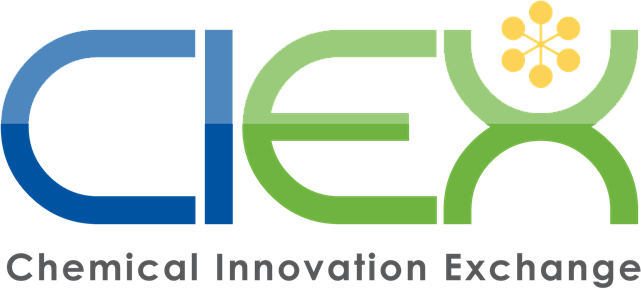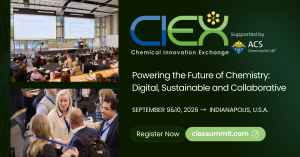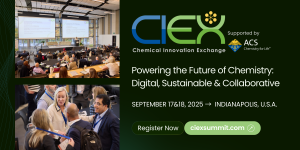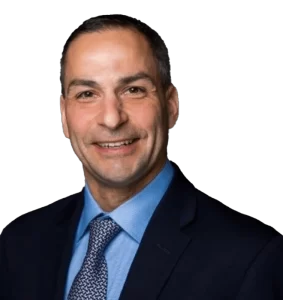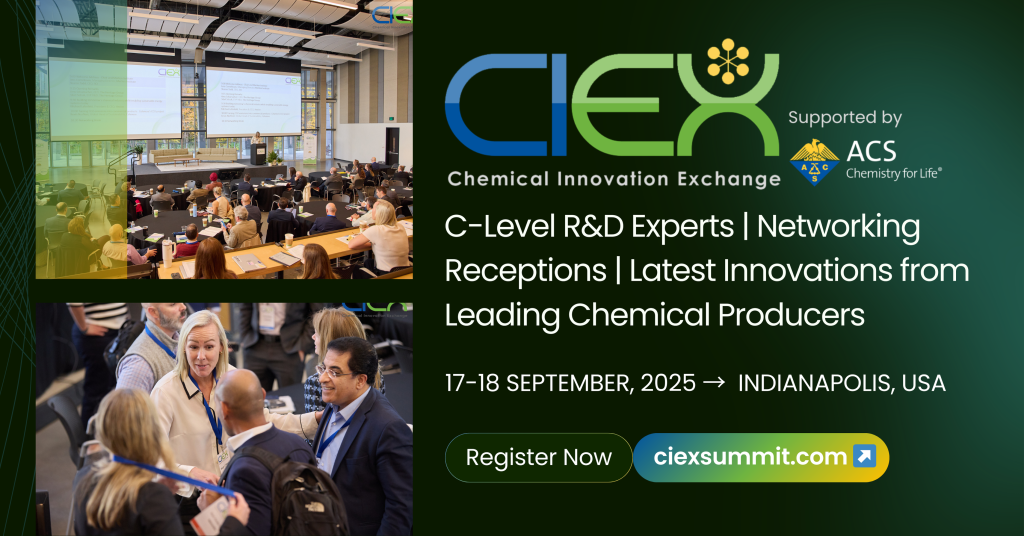Shaping the Future of Chemical Innovation with Syensqo
CIEX is a leading forum for chemical R&D, innovation, and sustainability leadership, bringing together senior executives and technical experts from companies such as Dow, Sumitomo Chemical America, Cabot, DuPont, 3M, Arkema, LanzaTech, Hexion, Schneider Electric, and many others shaping the future of the industry.
Among the standout sessions, Syensqo offered a rare look at how a forward-thinking materials organization is reengineering polymer discovery — transforming multi-million-molecule design spaces into commercial breakthroughs in months instead of years.
For chemical leaders focused on accelerating innovation, reducing R&D risk, and rethinking discovery pipelines, this session delivers a forward-looking perspective.
You can explore the full executive summary or watch the complete presentation recording via the link below.
📹 Watch the full Syensqo presentation: [link]
From Search to Design: How Syensqo Is Reframing the Economics of Polymer Discovery
For decades, polymer innovation followed a familiar logic: generate candidates, test them, iterate, and hope feasibility emerges before budgets collapse or timelines break. That model—rooted in experimental search—was expensive, slow, and fundamentally constrained by human bandwidth.
Syensqo presented a case that signals a structural departure from that paradigm. Their team demonstrated how AI-driven molecular screening, combined with physics-based simulation, is no longer just accelerating discovery—it is redefining what discovery means.
The Core Shift: From Experimental Search to Computational Design
Traditional polymer R&D operates as a narrowing funnel: chemists begin with a manageable subset of molecules, test experimentally, and progressively eliminate failures. This approach is inherently conservative—not by choice, but by necessity.
Syensqo reversed that logic.
Instead of starting small, their team began with four million molecular candidates. Using AI-based screening, they rapidly compressed that design space into a few hundred viable structures. Physics-based simulation then filtered those further—before any material was synthesized.
This matters because it fundamentally changes what R&D can explore.
Design space is no longer limited by laboratory throughput. It is limited only by how well the organization can define performance constraints and encode them into models.
This marks a shift from:
-
Trial-and-error → Constraint-driven design
-
Experimental filtering → Computational filtering
-
Iteration → Pre-validation
The 18-Month Result—and What It Actually Proves
Syensqo’s team moved from four million molecular candidates to a polymer meeting strict performance requirements in 18 months—including thermal stability, UV resistance, hydrolytic resistance, and optical clarity.
Without AI, they estimate this would have required five to six years—if it were pursued at all.
But the most important insight is not speed.
The project would likely not have been launched without these advanced AI modelling tools, which made the technical risk manageable.
This signals a deeper transformation: AI is not just compressing timelines—it is expanding what organizations are willing to attempt.
The New Bottleneck: Organizational Readiness, Not Technology
As computational tools mature, the critical constraint is no longer technical. It is structural.
They highlighted three realities chemical leaders must confront:
-
AI expands design space by orders of magnitude
But most R&D organizations are still structured to explore narrow, incremental territory. -
Simulation now filters candidates before synthesis
Yet many workflows still privilege wet-lab validation over digital pre-screening. -
Data is no longer scarce—structure is
Legacy datasets, unstructured notebooks, and disconnected systems prevent AI from learning effectively.
This creates a paradox in which the technology is ready, but most organizations are not.
Why This Is a Leadership Problem—Not a Technical One
The implications of this shift extend far beyond tools.
AI-driven discovery demands changes in:
-
Portfolio logic (what gets funded)
-
Risk models (what is considered viable)
-
Talent profiles (what skills matter)
-
Governance (how decisions are made)
If leadership continues to treat AI as a productivity layer rather than an operating model shift, the value will remain marginal.
The 2026 Reality: Feasibility Becomes the Differentiator
For years, speed was the primary competitive advantage in innovation.
That era is ending.
When everyone can move faster, speed becomes table stakes. What differentiates leaders is no longer how quickly they can execute—but what they can make feasible.
This example makes this visible.
Closing: The Strategic Question Leaders Must Now Ask
The real question for chemical executives is no longer:
How do we digitize our R&D?
It is:
What discoveries are we currently not even attempting—because our operating model makes them impossible?
Syensqo’s case suggests a new answer:
Many of those barriers are no longer technical, but they are organizational.
⚗️⚡Breakthrough innovation is harder. Budgets aren’t bigger. Expectations are.
Chemical leaders are under pressure to deliver faster commercialization, measurable sustainability gains, and smarter R&D execution — without increasing risk or cost.
CIEX 2026 is built for exactly that challenge.
Two focused days with senior leaders in R&D, innovation, and sustainability across the consumer, industrial, and specialty chemical sectors — tackling:
• Scaling new technologies beyond the pilot phase
• Embedding AI and digital tools into real R&D workflows
• De-risking innovation through the right partnerships
• Turning sustainability targets into profitable product pipelines
Expect practical insight, peer exchange, and high-value connections with the leaders solving the same problems you are.
📍 CIEX North America | September 9–10, 2026
If you influence innovation strategy, R&D direction, or technology investment — this is where you need to be.
